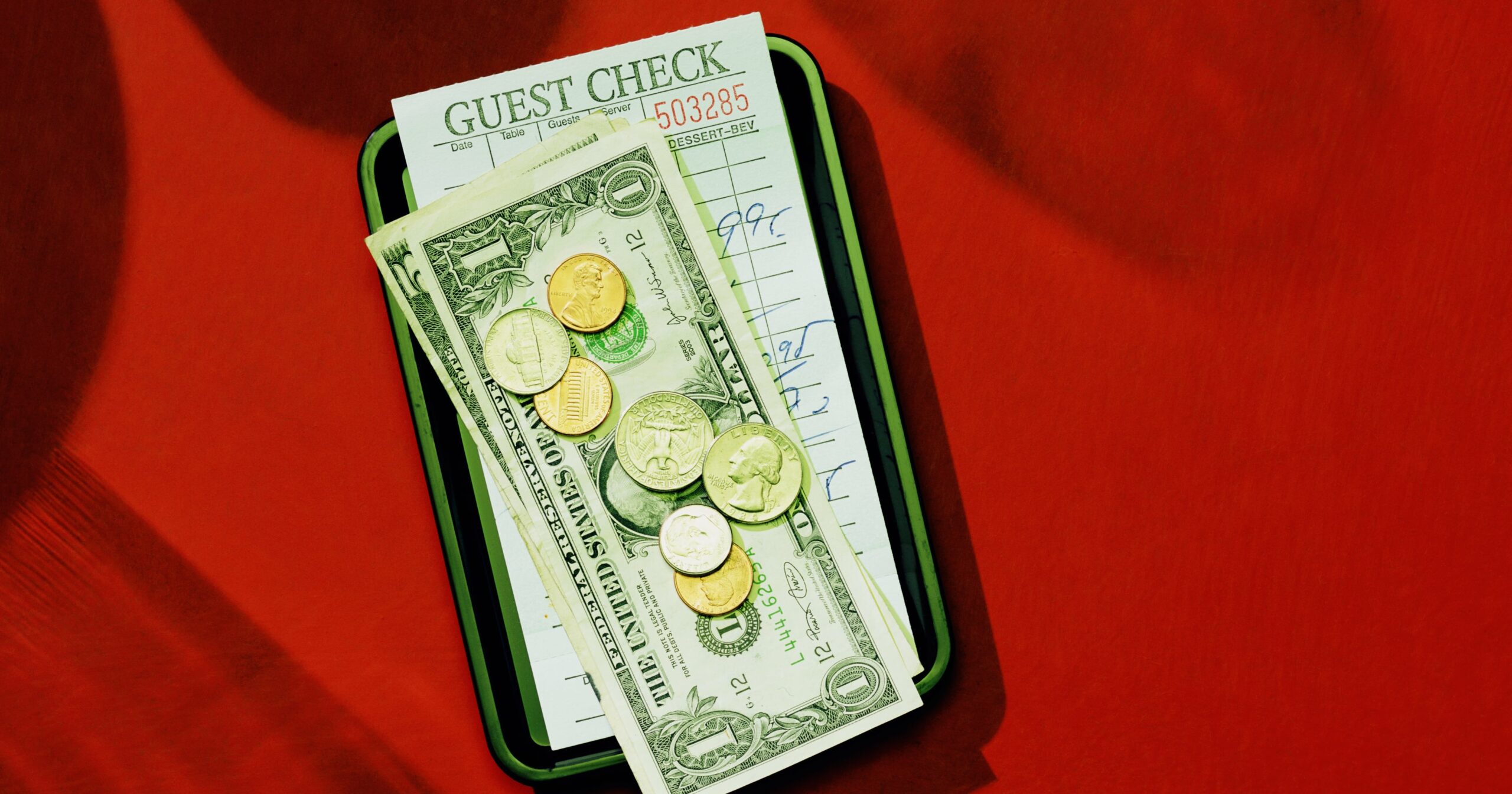I’ll be the first to admit that money is not my preferred topic of conversation (personally, I’d rather discuss skin care hacks, travel trends, or the psychological reason I love reality dating shows).
However, I’m not alone in this sentiment – according to a 2024 Bankrate study, only 38 percent of adults are comfortable discussing personal finances. And while we often discuss and see depictions of money putting a strain on romantic partnerships and marriages, a recent Bread Financial report found that one in five Americans feel financially incompatible with friends – a feeling they’re likely burying in the sand.
“At their core, friendships thrive on trust, mutual respect, and emotional equity, which make them feel sacred,” says relationship expert Channa Bromley, PhD. “But money has a way of challenging even the strongest bonds.”
It isn’t just about how much cash someone has in their bank account: money often represents other values and principles like power, control, and even self-worth, which are all deeply personal and often volatile when introduced into interpersonal dynamics. “Money is never neutral in relationships,” says Dr. Bromley.
So, why does money have such power over us and our friends? Well, whether we like it or not, there’s a lot of unspoken and informal financial expectations surrounding friendship, says financial therapist Kate Dorman. How we spend money can bring us closer to our friends: purchasing a bottle of champagne for exciting news, investing in a thoughtful birthday gift, or buying concert tickets with friends for a group night out. But more often than not, money strains friendships when these expectations go unmet. “People may feel obligated to do certain things with their money, which can cause bitterness, and there’s room for resentment if someone can’t afford something their friend can,” says Dorman.
Experts Featured in This Article
Channa Bromley, PhD, is a relationship and psychological insight coach.
Kate Dorman is a certified financial therapist and founder of Sound Financial Therapy.
Dan Pallesen, PsyD, is a financial psychologist and certified financial planner.
Challenging money dynamics frequently arise when people in their 20s and 30s begin to earn different amounts of money while trying to navigate shared activities, say, when one friend wants to book a reservation at a five-star restaurant while the other is stretching their budget to order in. The result? “An unspoken divide and constant undercurrent of tension that neither party knows how to address without sounding petty or self-centered,” Dr. Bromley says.
“Over time, these differences can build resentment since the friend with fewer financial resources may feel excluded or judged for not being able to keep up, while the higher earner may feel pressured to compromise or cover costs just to maintain the connection,” Dr. Bromley adds. This unaddressed wealth disparity can then run the risk of one person distancing, ultimately deteriorating the friendship.
But here’s the thing: you can and absolutely should maintain friendships across socioeconomic divides. “It’s so important to maintain friendships with people of different socioeconomic status because you can really learn from one another and help each other grow as individuals and in your relationship to money,” Dorman says. It’s no secret that we all have unique, complex experiences with money that can shape our beliefs and expectations, but if you take the time to listen and evolve, you’ll better understand yourself and your friends.
After all, true financial compatibility isn’t about matching incomes, Dr. Bromley says. “It’s about shared values.”
How to Keep Friendships Intact Across Socioeconomic Divides
First and foremost, talk about it. “If you can talk about sex with your friends, then you can absolutely talk about money, because you already have the foundation of vulnerability,” Dorman says. Of course, it’s easier said than done, but normalizing the topic is step one. “Financial shame is extremely common, so talking about money typically requires some humility, but when it’s openly discussed, it brings people closer.”
Financial psychologist Dan Pallesen, PsyD, agrees. “We live in a culture where it’s frowned upon to openly talk about money, but I highly encourage people to get it out in the open,” he says. If left in the dark, these dynamics can quietly erode the foundation of a relationship, he explains. Candid discussions also eliminate any assumptions about what someone can or can’t afford. “Friendships don’t thrive on assumptions, and when it comes to money, silence is a breeding ground for misinterpretation,” Dr. Bromley adds.
Now, as for how the conversation should look, there are a few avenues you can take. You don’t have to discuss everything at once, but Dr. Pallesen recommends talking about how money was handled in your household growing up, how you see wealth addressed (or not addressed) in your community, financial expectations and goals you have for yourself, and any isolation or shame you feel around socioeconomic status or divides. “No two people are ever on the exact same trajectory, so it’s best to get really honest to maintain lifelong friendships,” he says.
That said, this likely won’t be a one-and-done conversation. In fact, frequent check-ins may be required depending on the circumstances. “If you can’t afford a specific plan, be upfront,” says Dr. Bromley. “Saying, ‘I’d love to hang out, but I need to keep it simple this month. Let’s plan something low-key,’ shifts the focus from money to the connection itself,” she explains. “For higher earners, being sensitive to others’ situations is key, so offering options like, ‘I’m planning dinner at this spot, but we could grab coffee instead if that works better,” makes room for everyone without judgment.”
Another idea is to build friendships around low-cost or free activities like hiking, game nights, beach picnics, or cookbook clubs. Or, take turns planning your hangouts so each person feels in control of the activity and whether or not it comes at a cost. Not only does this create a neutral playing field for everyone involved, but Dr. Bromley says it helps strip away the distractions of spending and lets connection shine as the main character.
Just note that it’s worth having these conversations before there is a noticeable strain on a friendship. “Money can strain friendships in subtle ways that often go unnoticed until they’ve done real damage, so it’s important to continually address these dynamics,” Dr. Bromley says. It’s OK (and normal) to have differences, but don’t always keep it to yourself. Because chances are, if you feel a strain on your friendship, so does your friend. “There needs to be an unshakable foundation of communication and mutual respect,” she says.
Last but not least, do some self-reflection. Dr. Pallesen says understanding your own relationship to money can actually help you be a good (or better) friend. “When we feel a certain way about money, whether it’s positive or negative, it’s common to project those emotions onto other people and then react to them,” he says. This transference is usually subconscious, but doing the inner work to address those personal insecurities can help release any resentment, and as a result, bring you closer to friends.
All told, true friendships ultimately flourish when values align, boundaries are respected, and when connection takes precedence over consumption, Dr. Bromley says. “Financial divides are inevitable, but how you navigate them determines whether the relationship thrives or fractures.”
Andi Breitowich is a Chicago-based freelance writer and graduate from Emory University and Northwestern University’s Medill School of Journalism. Her work has appeared in PS, Women’s Health, Cosmopolitan, and elsewhere.




